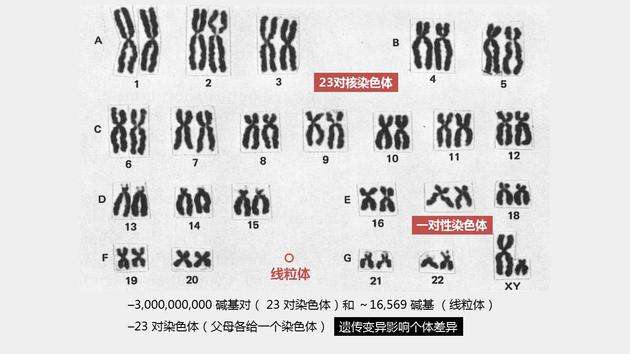(单词翻译:单击)
We have forty-six chromosomes, but some ferns have more than six hundred. The lungfish, one of the least evolved of all complex animals, has forty times as much DNA as we have. Even the common newt is more genetically splendorous than we are, by a factor of five.
我们有46对染色体,但是有些蕨类植物的染色体多达600多对。肺鱼,所有动物中一种进化最不完善的鱼类,其染色体数是我们的40倍。即便是普通的水螈,其基因数也是我们的5倍。
Clearly it is not the number of genes you have, but what you do with them. This is a very good thing because the number of genes in humans has taken a big hit lately. Until recently it was thought that humans had at least 100,000 genes, possibly a good many more, but that number was drastically reduced by the first results of the Human Genome Project, which suggested a figure more like 35,000 or 40,000 genes — about the same number as are found in grass. That came as both a surprise and a disappointment.
显然,问题的关键并不在于你有多少基因,而在于你怎样对待它们。人类基因数近来成了人们热烈讨论的一个话题,这是一件好事情。直到不久以前,许多人以为人类至少有10万个基因,也许还更多,但是人类基因工程的第一批研究结果使得这个数字大大缩水。研究表明,人类只有3.5万 — 4万个基因——与草的基因数相同。这个结果既令人吃惊,又不免有些令人失望。
It won't have escaped your attention that genes have been commonly implicated in any number of human frailties. Exultant scientists have at various times declared themselves to have found the genes responsible for obesity, schizophrenia, homosexuality, criminality, violence, alcoholism, even shoplifting and homelessness. Perhaps the apogee (or nadir) of this faith in biodeterminism was a study published in the journal Science in 1980 contending that women are genetically inferior at mathematics. In fact, we now know, almost nothing about you is so accommodatingly simple.
你大概已经注意到,基因已经非常频繁地很人类的众多病症扯在一起。欣喜若狂的科学家一次又一次地宣称他们已经发现了导致肥胖症、精神分裂症、同性恋倾问、犯罪行为、暴力、酗酒乃至商场扒窃和流浪的基因。这种基因决定论的最高潮(或最低潮)就是发表于1980年《科学》月刊的一篇论文,该文十分肯定地宣称妇女的基因构成先天注定了她们在数学方面能力低下。事实上,我们现在知道,有关你的任何方面都不是那么简单的。


